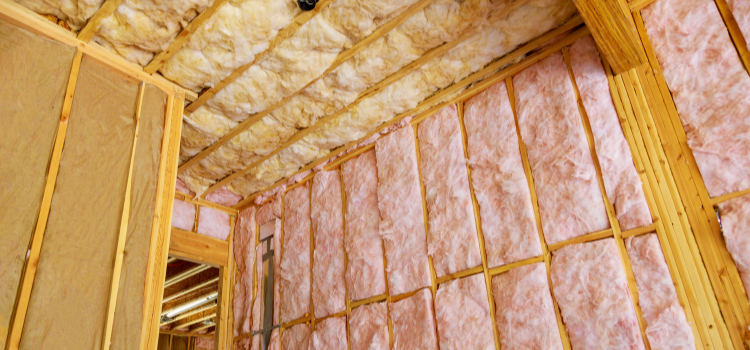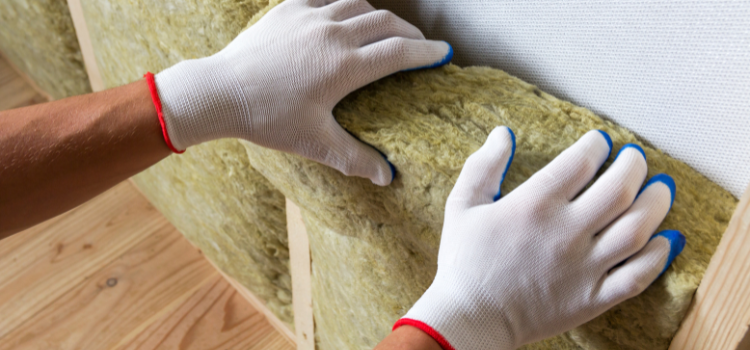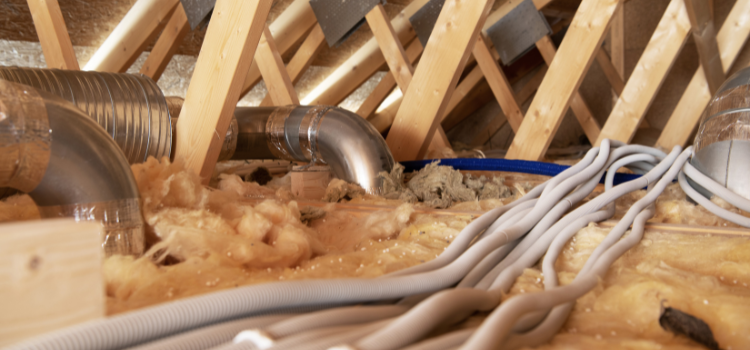How much does insulation cost? | 2024 cost guide
Adding insulation to your home can cost anywhere from $1,400 to $4,000 upwards, depending on the size of your home and choice of insulation.
With temperatures in Australia soaring each summer, there is no better time to consider adding insulation to your home.
Not only will insulation improve your own comfort, but it will also reduce your energy bills and add value to your home. So, it comes as no surprise that more people are interested to find out just how much insulation costs.
Get free quotes in minutes.
Get quotes from our qualified and licensed tradies Australia-wide.
Article Overview
- How much does it cost to insulate a house?
- Factors that may increase your insulation cost
- Types of insulation
- Taking quotes and choosing a professional for insulation
- Insulation FAQs

How much does it cost to insulate a house?
There are a few different methods of insulation and each one comes with a different price tag. For example, ceiling insulation can cost between $1,600 to $2,400. Then under-floor insulation sits between $2,800 to $3,500. Wall insulation is more expensive at $3,200 to $4,800.
Professionals typically charge an hourly rate which increases your installation cost. The average hourly rate in Australia is between $40 and $150 per hour.
High-Range Insulation Hourly Rate — Above $80 per hour
In the high range, you will be dealing with a very experienced service provider who will get the job done fast and efficiently. They should uphold a stellar reputation, provide excellent service, and have great communication.
Medium-Range Insulation Hourly Rate — Around $60 per hour
In the medium range, professionals have a few years of experience and are able to provide quality work. This is the most commonly sought-after price range for most home insulation installations.
Low-Range Insulation Hourly Rate - Below $45 per hour
In the low range, you may be dealing with a less experienced professional who is just starting out, it may take longer, but you can usually get a better price.

Factors That May Increase Your Insulation Cost
As with any job, there are factors that can increase your overall cost. For insulation the main factors include:
- Access to your property
- Thickness of the material
- Obstructions
- Spacing between joists
Types of Insulation
The main types of insulation are reflective insulation, batt insulation, spray insulation, loose fill insulation and insulation boards. Let’s break them down in further detail.
Reflective Insulation
Reflective insulation is a popular choice. It features a paper core and aluminium, which works by reflecting heat off the house. Installing reflective insulation is, however, a demanding task that is quite dangerous and best left to the experts. Some reflective insulations even utilise a honeycomb core that minimises heat gain within the insulation itself.
Batt Insulation
Batt insulation also offers a reflective surface but is typically formed by fibreglass or cellulose materials. This option prevents heat from entering the house through tiny air pockets that trap the heat.
A special consideration with batt Insulation is that it comes with something known as an “R-value" — this system tells you how efficient the insulation is. The higher the R-value, the better for batt insulations. It ranges from one to five, with five being more expensive but definitely more effective overall.
Spray Insulation
Another installation that is best left to the professionals due to the complexity and associated risks. Spray insulation similar to Batt insulation uses air pockets. Spray insulation also requires special equipment, so is probably best to use a professional.
Loose-Fill Insulation
Loose-fill insulation is widely used for ceiling insulation and is ideal due to its capacity to conform to anything without disrupting structures or finishes. Again, air pockets are present and this task is also advised to be left to the professionals. It can be made of wool, cellulose, or fibreglass.
Insulation Boards
Insulation boards are most commonly used under flooring and are widely available. Some even have aluminium backing.

Taking Quotes and Choosing a Professional for Insulation
As mentioned, hourly rates and insulation costs can vary depending on a number of factors. In order to get the most accurate quote for your job you should approach several different professionals with as much information as possible about your specific job. It may even be wise to have an inspection prior to accepting a final quote.
As we also mentioned, professionals charge per hour and across a low, medium, and high range. We would always advise investing in a well-established professional to ensure you receive the highest quality insulation and installation.
There are a few key questions you can ask insulation professionals:
- Are you qualified for this job?
- Do you have insurance?
- Do you have all the appropriate equipment?
- Will you provide a written quote?
- How long will my job take?
While the temptation of cutting costs by DIYing your insulation can be quite tempting, we always advise enlisting the help of a trained professional to ensure a positive outcome.
Get free quotes in minutes.
Get quotes from our qualified and licensed tradies Australia-wide.
Insulation FAQs
Which type of insulation is best for my home?
This is a question best posed to professionals when taking quotes, as often it completely depends on your home’s current situation, layout, budget and other contributing factors. Discussing your options with a professional is the best way to ensure you choose the right insulation for you.
How much does it cost to insulate a home?
Adding insulation to your home can cost anywhere from $1,400 to $4,000 upwards, depending on the size of your home and choice of insulation.
Where can I find an insulation professional?
You can browse for local insulation professionals on Service.com.au.
How long will it take to install my insulation?
Again, this question should be asked before beginning work with your chosen professional. Insulation installation can take anywhere from one week to a few months to properly install.
Is insulation worth it?
If you are looking for a long-term investment that will improve your quality of life at home and home value overall, then insulation is a fantastic option for you.
Further Reading
- Underfloor Heating Installation
- How to Properly Insulate Your Home
- Hot Tips to Keep Your Home Cool This Summer
All the costs quoted were sourced at the time this article was written. They are to be used as an AUD cost guide and may vary locally, and are subject to market changes.
